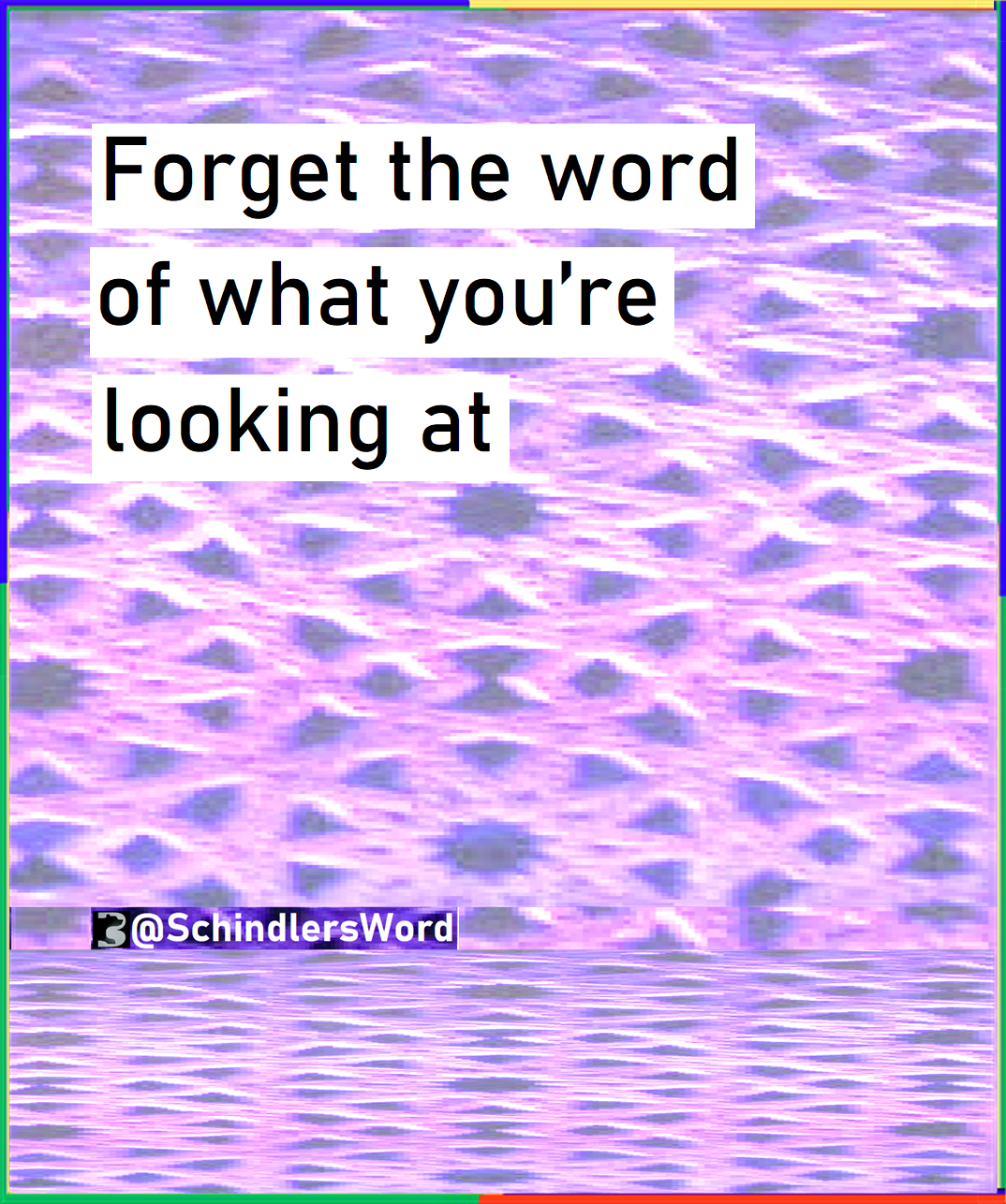
To see, you must forget the word of what you’re looking at.
Forget the word (of what you’re looking at) is simple on paper but all the more difficult in practice.
That’s because all word-users are words-using animals. The only thing that separates us is our habits.
The habit that separates the word-users more than any other is ourr habit of watching, looking, and seeing — these are nothing but three different words for the identical act.
WATCH LOOK SEE
If your habit of watching, looking, and seeing prevents you from seeing words, you must change it.
This is the first step to forget the word of what you’re looking at.
With step one complete, let’s move on to step two without further ado.
Step 2 consists of returning to the child you were not long ago. The child that watched, looked, and saw everything before it knew everything would later be words, the child that watched, looked, and saw everything before it spoke its first (word).
Being that child again means you’re now ready to forget the word of what you’re looking at.
That said & at the risk of repeating myself, forgetting the word is simple on paper and difficult in practice.
HABITS
Habits are too light to be felt until they fast become chains too heavy to be broken.
On the downside, we can never free ourselves from habits. On the upside, we can replace bad habits with good habits.
The most powerful of your habits are your word-habits. Your word-habits compound in the same way as compound interest works in financial terms — you get back more than you put in.
Therefore, your first marching order is to become conscious of the words you habitually use.
Whether you use them out loud or in self-talk makes no difference. The only thing that matters is you must become conscious of your word habits and change them.
If in the meantime your habitual words got you into a hole, the best way to get out is to stop digging.
IN THE BEGINNING IS THE WORD
In the beginning is the word and when you change how you look at words, you and the world change.
When you accept in the beginning is the word, and when you change how you watch, look at, and see words, then opportunities show up that you previously didn’t even know existed.
But that’s not all.
You also begin making decisions you previously only knew the limits of.
- “Where is fancy bred, in the heart or in the head?” – Shakespeare
- “To see, we must forget the name of the thing we are looking at.” – Claude Monet
- “Simply by changing your habitual vocabulary, you can instantaneously change how you think, how you feel, and how you live.” – Tony Robbins
TAKEAWAY
Nothing impacts your feelings more than your word habits.
Nothing impacts the journey you’re on — what you pursue and what you let go of — more than your feelings.
You can feel good or bad anytime
Decide your words and feelings well for the journey you’re on depends on it.